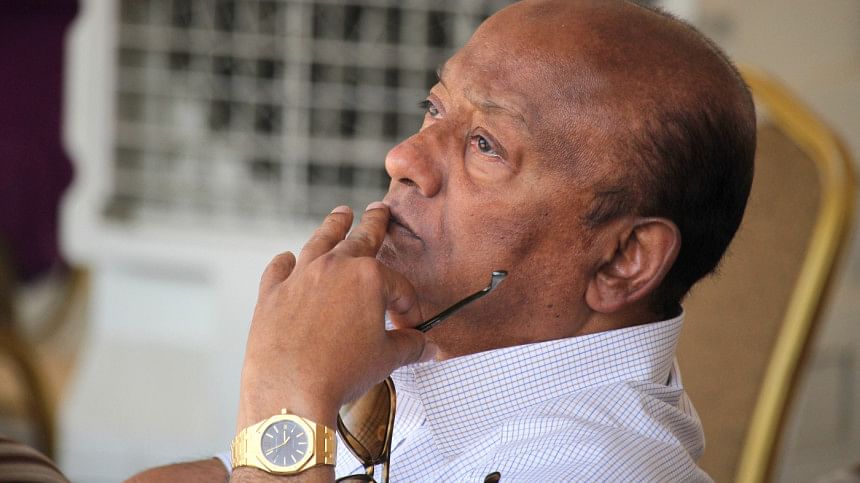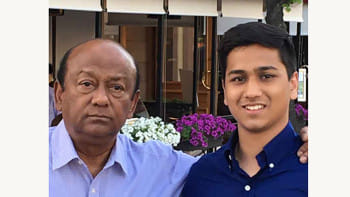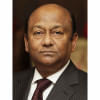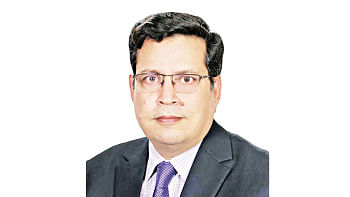The man whose commitment to ethics was unbending

With the loss of Latifur Rahman (Shamim mama to me) in 2020, we not only lost one of the foremost business icons of Bangladesh, but the Metropolitan Chamber of Commerce and Industry, Dhaka (MCCI) also lost one of its longest-serving and distinguished former presidents. I personally lost an uncle and a mentor. Over decades of hard work and ethical business practices, Mr Rahman established the Transcom Group as a major group of industries in the country. His enterprises have provided employment to thousands of persons. He served for seven years (three tenures) as president of MCCI, Dhaka. In that role, he was unfailing in trying to develop and entrench ethical business practices in the country, mentor young businesspeople, and forever be an ambassador of all that was good in the Bangladeshi business industry. His enterprises brought global recognition for excellence in business in the country. Among many recognitions, he received the Oslo Business for Peace Award from the Business for Peace Foundation, Oslo in 2012, one of the highest international awards for ethical business.
Latifur Rahman was deeply patriotic, proud of the fact that neither he nor his children had any passports other than that for Bangladesh, and that all his business was concentrated in Bangladesh. His public service was exemplary; but in many ways never publicised, as were his business successes. He was unfailingly courteous and debonair, but never failed to exercise his razor-sharp acumen (tempered with fairness) in his business dealings. In his personal relationships, he was kind and gentle. He overcame two indescribable tragedies in his personal life – first when he lost his daughter Shazneen and then his grandson Faraaz – with the utmost dignity and grace, which characterised him always. My mother, Mrs Laila Kabir, and he (both former presidents of MCCI and cousins born in Jalpaiguri, who made their homes and lives in their beloved ancestral land of Bangladesh) were immensely fond of each other. He was the one who cajoled me out of my shell (as a young lawyer who was hiding in the comfort of her law chamber) to venture into the world of business, since I had specialised in corporate and commercial law. My participation in MCCI is mostly due to these two persons, but much more due to Mr Latifur Rahman's direct encouragement. I have missed him dearly since his departure for the eternal. MCCI, and in fact the entire business community, continues to miss his guidance and presence.
A short few years after I qualified as a lawyer, he cornered me one day and said, "Mama, why don't I see you in all these seminars and workshops? All sorts of lawyers go there, but I never see you." I was a bit nonplussed, to say the least. My idea of practising law then was being dragged to court every morning by my late senior Syed Ishtiaq Ahmed, working in chambers till 10 pm, and then doing the same the next day. It was only at Shamim mama's gentle but insistent persuasion that I began to show up at the many business- and economy-related workshops and seminars. He told me it was good to work hard, but one also had to be seen in public as a professional.
So, here I am 30 odd years on, so deeply connected with MCCI – where he was the President for 7 years – besides being a senior advocate of the Supreme Court.
My first recollections of Shamim mama are from family weddings and suchlike, of a rather well-dressed and dignified man of a somewhat reserved manner, who would always greet my mother with a hug and a sweet smile, call her apa, and she would refer to him using "tui", while many others would be treating him much more circumspectly. Ammu would proudly say, "Shamim, amar bhai, Jalpaigurir".
So, for him to single me out was not something I had quite expected. I understand now that I was most certainly not the only person he gently prodded forward to test uncharted territories. He mentored many people and helped them find their places in the world.
I first became a member of the MCCI committee when he was the president. I got my obligatory introductory lecture from him, and have always borne those words in my mind and tried to follow them: of never allowing MCCI to be used for any one member or for anyone's personal benefit. I must admit, I broke the hallowed hundred-and-something-year-old MCCI tradition by quietly taking some photographs of Shamim mama in the MCCI committee room – and I am very glad I had done so, because I was able to send them to his daughter, Simeen, after he passed.
Whenever he would see me slacking off at the end of the table, playing with my new iPhone or daydreaming about something, he would gently draw my attention back by calling upon me for an opinion on whatever was being discussed. He did that with the other senior members at the table, too! It was another lesson in being consummately civilised while demanding that attention be paid to the matter at hand. He gave me a lot of confidence in myself, and taught me so much by example about being a good person, and how to bear unbearable losses with stoicism and dignity.
I last spoke to him during the last meeting of the selection committee for the Faraaz Hossain Bravery Award 2019. He was in his country home in Cheora, and sounded well. Several of us had planned to go there and see him. But, unfortunately, it was not to be. As coincidence would have it, in the early hours after fajr on July 1, 2020, I was scrolling through photographs on my iPad when I found a photograph I had taken on August 8, 2015 in the MCCI Lounge of Shamim mama and my mother – both looking well, both with mischievous smiles on their faces, with Shamim mama's arm around my mother, holding her close. I saved the photo to my favourites folder to show to Amma, unaware that, within hours, he would be no more. That debonair, stylish, gentle, and kind man with the razor-sharp intellect and no-nonsense manner, the man with the utmost civility and unbending commitment to ethics as his hallmark, was no more.
Indeed, Latifur Rahman was one of a kind. But when we speak of people who have left their marks on us, we always say that there will be no one like him again. Yet, I think that if his legacy really means so much to us, we need to take the young people of this country (in whom he had so much faith) and try to shape them into thousands of Latifur Rahmans, so that his beloved Bangladesh would have persons replicating his single-minded dedication to the betterment of the country.
Nihad Kabir, barrister-at-law, is a senior advocate of the Supreme Court of Bangladesh and senior partner at Syed Ishtiaq Ahmed and Associates. She is the chairperson of the BUILD Trust (Business Initiative Leading Development), and was president of Metropolitan Chamber of Commerce and Industry, Dhaka from 2017-2021.


 For all latest news, follow The Daily Star's Google News channel.
For all latest news, follow The Daily Star's Google News channel. 











Comments